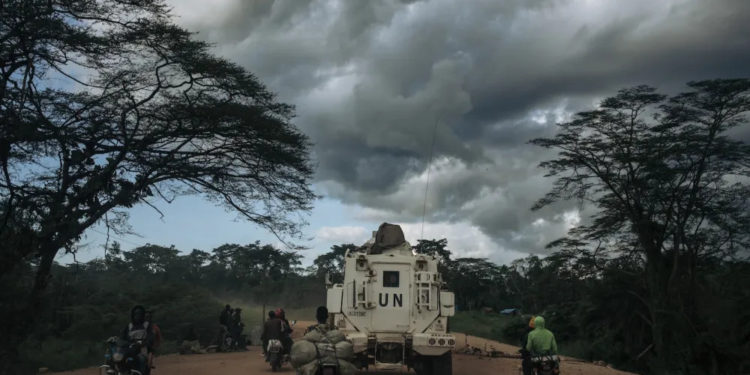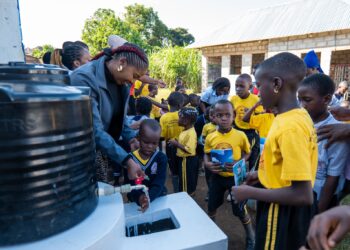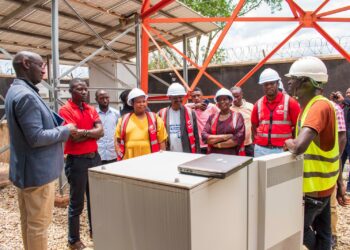By Nosmot Gbadamosi
The Democratic Republic of the Congo summoned Uganda’s representative in Kinshasa, Matata Twaha Magara, for a meeting on Friday over a U.N. report stating that Rwanda and Uganda have provided support to the March 23 Movement (M23) rebel group operating in eastern Congo.
“We need to take a look at the situation in Uganda and how to deal with it,” said Patrick Muyaya, a Congolese government spokesperson. “We have Ugandan soldiers dying alongside Congolese soldiers in Ituri and North Kivu [provinces] fighting the [Allied Democratic Forces], rebels who are originally Ugandans, and, on the other hand, that they are providing support to the rebels.”
The U.N. Security Council’s group of experts focused primarily on Rwanda and M23. Their report said some 3,000-4,000 Rwandan soldiers had fought alongside M23 rebels. “Since the resurgence of the M23 crisis, Uganda has not prevented the presence of M23 and [Rwanda Defence Force] troops on its territory or passage through it,” said the report, released on July 8.
U.N. experts said they had obtained evidence of “active support” by Ugandan military officials, including sanctioned M23 military chief Sultani Makenga traveling to Uganda for meetings.
Uganda has denied involvement. Uganda’s deputy defense spokesperson, Deo Akiiki, called the allegations “laughable, baseless, and illogical.” Since a resurgence of fighting in 2021, M23 has seized large tracts of territory in North Kivu.
The dispute risks escalating a highly complex and deadly war in Congo. Uganda hosts the majority of Congolese refugees, more than 500,000, according to the U.N. Refugee Agency. While a humanitarian truce was being put in place, the M23 rebels were “forcibly recruiting young people” while receiving “continuous reinforcements of personnel and equipment” from Rwanda and Uganda, Congo’s deputy prime minister for defense, Guy Kabombo Muadiamvita, said during a cabinet meeting on July 12.
A humanitarian truce that was due to end July 19 was extended by 15 days until Aug. 3, Washington announced last Wednesday, though that truce was only partly respected when it began on July 5. Two children and two teenagers were killed on July 15 in a bombardment around 10 miles west of North Kivu’s capital, Goma.
Fighting also flared in other parts of the country. At least 70 people, including nine soldiers, were killed by the Mobondo militia in a deadly attack on the village of Kinsele in western Congo on July 13.
More than 1.8 million have been driven from their homes in the past six weeks, among the 7.3 million people internally displaced by fighting in Congo, according to U.N. data estimates.
Residents of Bambo, a town north of Goma, warned that the town had sunk further into insecurity after being vacated by M23 rebels, which gave the opportunity for bandits to fill a security void. And at least 10,000 people in Lubero in North Kivu who fled the advance of M23 rebels say they are without aid.
The conflict fueled by Congo’s vast mineral wealth is affecting mining output. The governor of Congo’s South Kivu province on Friday ordered the suspension of all mining activities to “restore order.” Earlier in July, local militias attacked a gold mine in Djugu in Ituri, killing six Chinese miners and at least two Congolese soldiers.
Troops from Malawi, South Africa, and Tanzania have been deployed to Congo since December 2023 as part of a peacekeeping mission sent by the 16-member Southern African Development Community. Yet regional leaders have been urged to apply more pressure on African nations directly involved in the conflict, such as Uganda and Rwanda, in an attempt to de-escalate violence. An African Union meeting over the weekend in Accra, Ghana, barely addressed the conflict in Congo.







Discussion about this post